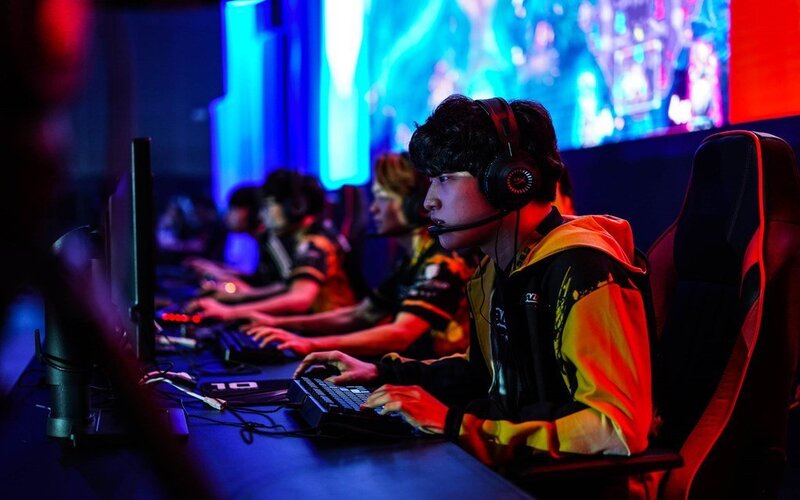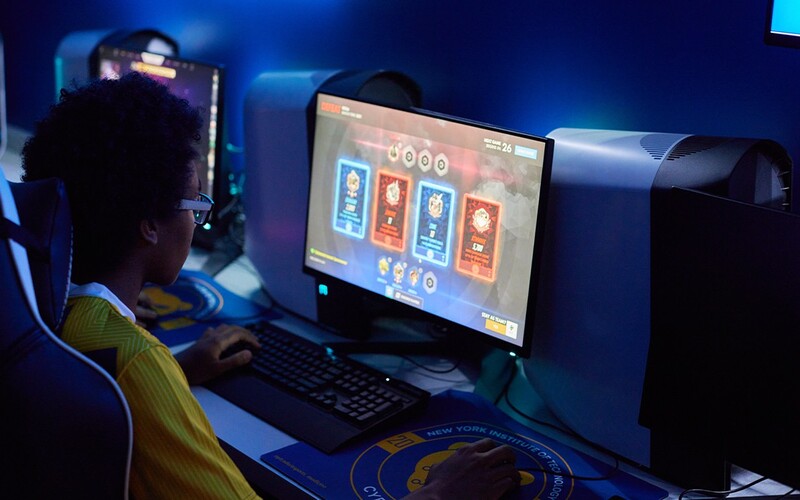
Overcoming Linguistic Challenges in Indonesian Game Translation
In an ever-evolving digital world, the gaming industry has become one of the most dynamic and exciting sectors. Amid this growth, game translation has become increasingly important to ensure accessibility and satisfaction for players from various cultural and linguistic backgrounds. Translating a game from the original language to Indonesian is not just about changing the text but also overcoming various unique linguistic challenges.
The Importance of Game Translation

Game translation plays a crucial role in bridging language and cultural gaps. Indonesia, with a population of more than 270 million people, is a large potential market for the gaming industry. By translating the game into Indonesian, developers can expand their reach and attract more local players. This also enhances the gaming experience, as players can enjoy the story and instructions in a language they understand well.
Linguistic Challenges in Game Translation
1. Nuances of Language and Cultural Expressions
One of the main challenges in translating games into Indonesian is maintaining the nuances of the original language and cultural expressions. Indonesian has a different structure and vocabulary from source languages such as English, Japanese, or Korean. Humor, idioms, and cultural expressions in games are often difficult to translate directly without losing their original meaning. Translators must be creative in finding the right equivalent words and maintaining the cultural context so that the message conveyed remains relevant and entertaining.
Read More: Why Indonesian Game Localization Is the Next Big Thing in Gaming
2. Translation Consistency
In games, translation consistency is critical to maintaining a comprehensive gaming experience. Using different terms for one concept can confuse players. For example, translations for the term "health points" can vary, such as "health points," "life," or "blood." Translators must ensure consistent use of the term throughout the game. This requires good coordination between the translation and editor teams, as well as a deep understanding of game terminology.
3. Limitations of Space and Character
Many games have space and character limitations for translated text, especially in user interface (UI) elements such as menus, buttons, and instructions. Indonesian tends to be longer than English in terms of the number of characters. Translators must be able to adapt translations to fit these constraints without compromising the clarity of the information. This requires the skill to compose words that are concise but still accurate.
4. Adapt Special Names and Terms
Many games use unique character names, places, and special terms. The translator must decide whether to keep the original name or adapt it into Indonesian. Some names may sound strange or unnatural in Indonesian, requiring adjustments. However, too many changes can take away from the game's original identity. This decision must be made carefully to maintain a balance between familiarity and authenticity.
Strategies for Overcoming Linguistic Challenges
1. In-Depth Research
Translators must do in-depth research on the game they want to translate. Understanding the story, characters, and culture in the game helps translators make the right decisions in translating text. Research also involves checking relevant terms and cultural references to ensure accurate and consistent translations.
2. Collaboration with Developers
Good collaboration between translators and game developers is essential. Translators can communicate with developers to understand the context and purpose of each translated text. Developers can also provide guidance on existing space and character limitations. By working together, translators and developers can create better translations that fit the game's vision.
3. Use of Translation Technology
Translation technologies such as computer-assisted translation (CAT) software can help improve translation efficiency and consistency. CAT tools allow translators to store frequently used terms and phrases in a database, making reference and reuse easier. In addition, CAT tools can also check translation consistency across texts.
4. Testing and Feedback
Once the translation is complete, it is important to test the game in Indonesian. This trial involves local players who can provide feedback on the translation. This feedback is invaluable for identifying errors, confusion, or deficiencies in the translation. By improving based on feedback, translators can ensure that the game can be enjoyed well by Indonesian players.
5. Words without Equivalents in the Target Language
Every language has words that are impossible to translate into some other languages, such as “serendipity” or “pause.” When one language has a particular word to describe a situation, finding alternative expressions in another language becomes a challenge in translation. Asian languages, for example, have many words to describe feelings and sensations that are difficult to translate into other languages using a single word.
Application of Case Examples
1. Games with a Story Focus (Story-Driven Games)
Games that focus on story, such as RPGs (role-playing games) or adventure games, often have long and complex dialogue and narrative. In this case, the translator must really understand the characters, the background of the story, and the emotions they want to convey. For example, games like "Final Fantasy" or "The Witcher" have deep, nuanced dialogue. The translator must ensure that the emotion and intensity in the dialogue remain palpable in Indonesian, which requires good writing skills and a deep understanding of the narrative.
2. Games with Fantasy Elements
Games that have fantasy or science fiction elements, such as "World of Warcraft" or "Mass Effect," often use technical terms or unique fictional names. Translators need to be careful when translating this term so as not to lose its meaning or make it sound strange in Indonesian. For example, the term "mana" in fantasy games can be translated as "magic energy," but retaining the term "mana" can be better to maintain authenticity and familiarity for players.
3. Games with Comedy Elements
For games that have comedic elements, such as "The Sims" or "Borderlands," translators must understand the humor in the context of the culture of origin and how the humor can be translated well into Indonesian culture. Humor based on puns or cultural references may need to be adapted to make it understandable and still funny for Indonesian players. This can be a big challenge because cultural and language differences often make humor difficult to translate directly.
Mobile Game Translation
With the rapid growth in smartphone usage, mobile games have also become very popular in Indonesia. Translating mobile games presents its own challenges due to the limited space on mobile screens and the need for short, direct text. Mobile games often have short instructions, notifications, and rapid-fire dialogue, so translators must ensure that each word is chosen carefully to convey the meaning clearly and efficiently.
Case Study
Successful Game Translation in Indonesia
Several games have been successfully translated into Indonesian and have been well received by the local player community. For example, the game "Mobile Legends," which is very popular in Indonesia, has been translated well so that players can easily understand the instructions and story in the game. This success cannot be separated from the efforts of translators who understand Indonesian culture and language, as well as good collaboration between translators and game developers.
Translating games into Indonesian is a challenging but very important process in the global games industry. By overcoming linguistic challenges such as language nuances, translation consistency, space limitations, and name adaptation, translators can create a better gaming experience for Indonesian players. In-depth research strategies, collaboration with developers, the use of translation technology, and testing with feedback are steps that can help translators achieve successful translations. Thus, game translation into Indonesian not only opens up new market opportunities but also increases the satisfaction and engagement of local players.
If you are looking for game localization services, Digital-Trans Asia is the most appropriate choice. Here, we will provide services according to your needs, especially for game localization. We will help you expand the game market that you are developing globally and internationally. Please consult with us to learn more.